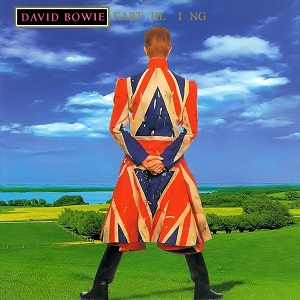For me, everything I love in music begins with David Bowie. Over the course of 26 studio records he touched on nearly every type of music from folk to glam, new wave, dance, electronica, jazz, soul and straight up killer rock. In honor of his birthday I’m sharing my rankings of each of his 26 records along with my take on each one. As with any list, I’m sure there will be disagreements, but that is the beauty of a career as diverse as Bowie’s…everyone takes something different from it and gravitates to different periods.
I present the first Misplaced Straws Ranking…David Bowie.
1 – The Rise and Fall of Ziggy Stardust and the Spiders From Mars (1972)

Ok, no real surprise here. Ziggy is one of the most influential records of all time and Bowie’s real breakthrough record (although it only peaked at 75 on the Billboard chart). Mick Ronson came into his own as a guitar hero and musical arranger as well as the perfect foil to Ziggy on stage. Ziggy tells a loose story centering on the premise that the Earth only has five years left to survive and ends up being saved by an alien rock n’ roll messiah. Bowie became Ziggy, he became rock n’ roll’s messiah, he saved the Earth and paved the way for every musician that followed.
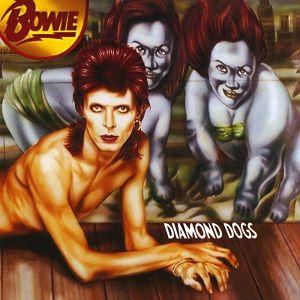
2 – Diamond Dogs (1974)
Just two years after creating Ziggy, Bowie killed him off. His next creation was Halloween Jack who guided us out of the world of glam into the futuristic urban decay and raw rock and roll of Diamond Dogs. Bowie let the Spiders go and assembled a new band for the project. It was part concept record based on George Orwell’s 1984 and part observations of the world of sex and drugs around him at the time. Rebel Rebel is the classic, but tracks like Diamond Dogs, Sweet Thing and Rock and Roll With Me propel this classic album into new territory.
3 – Young Americans (1975)
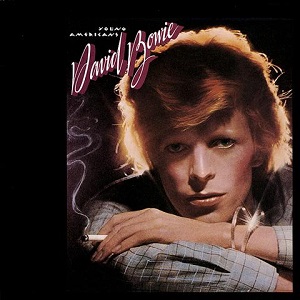
During breaks on the elaborate Diamnd Dogs tour, Bowie went back in the studio for another total transformation. Gone was the futuristic urban fantasy of Halloween Jack, in its place grew the plastic Philly soul sound of Young Americans. Bowie assembled a classic band featuring Mike Garson, Earl Slick, Carlos Alomar, David Sanborn, and even John Lennon made appearances on Fame and a cover of The Beatles’ Across The Universe. This was pure white soul and funk and features one of my personal favorite Bowie tracks…Win.
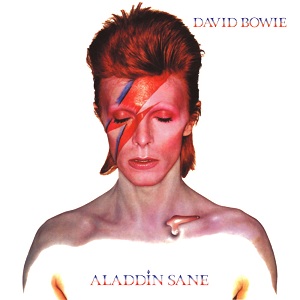
4 – Aladdin Sane (1973)
Aladdin Sane came less than one year after Ziggy so, sonically, it’s a match to Ziggy. It was the last record of original music with Spiders from Mars and the first appearance of Mike Garson who would end up playing with Bowie longer than any other musician. This all-out rocker is loaded with classics, led by Drive-In Saturday and Cracked Actor.
5 – Hunky Dory (1971)
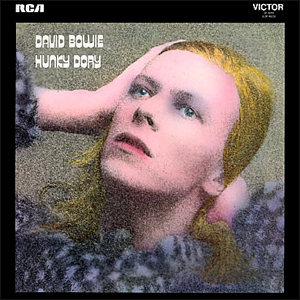
For me, this is where the legend of Bowie really starts. It was his fourth record but the first where everything gelled. Hunky Dory begins the change from folkie to rocker and is the first appearance of Mick Ronson, Trevor Bolder, and Mick Woodmansey, soon to become the Spiders from Mars. They are joined here, most notably on Life on Mars, by the legendary Rick Wakeman. Changes, Queen Bitch, Quicksand, Bewley Brothers…this record foreshadows everything that came after it.
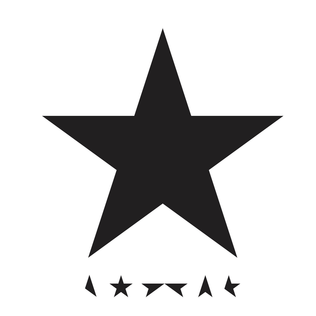
6 -Blackstar (2016)Bowie’s final record. There isn’t much left to be said about it. A truly incredible last act at an age when many are just phoning it in. Blackstar & Lazarus are classics, but it’s the partnership with Donny McCaslin on tracks like Sue and I Can’t Give Everything Away that really gives this jazz-laced masterpiece its life.
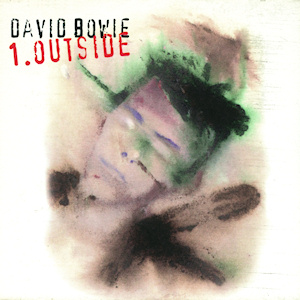
7 – Outside (1995)
One of the most polarizing Bowie records, most either love or hate it. I absolutely love it. This is more a piece of art than a traditional record. It tells a convoluted story involving the “Art Crime” murder of a 14 year old girl and features many spoken interludes. But like anything, it’s the songs that matter, and Outside sees Bowie reconnecting with Brian Eno to craft a series of industrial, electronic songs with depth and heart. The Hearts Filthy Lesson and Hallo Spaceboy are the standouts, but the finale, a re-recording of his own Strangers When We Meet makes this a must-have.
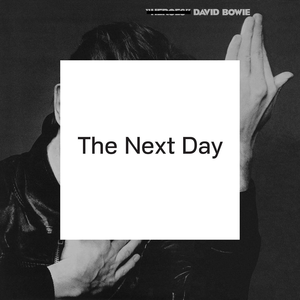
8 – The Next Day (2013)
A complete surprise upon it’s release as everyone assumed Bowie was retired, The Next Day saw him reunite with Producer Tony Visconte to produce a modern, reflective late career masterpiece. The cover was a throwback to “Heroes” but the music was entirely new. This was a rock record that perfectly set up the jazz-influenced record that followed. From the reflective Where Are We Now to the rockers of The Stars (Are Out Tonight) and Valentine’s Day, this record showed that no matter how long he’s away, Bowie is still the master.
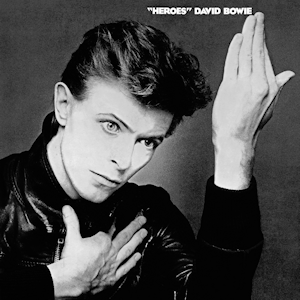
9 – “Heroes” (1977)
The second release of the Berlin Trilogy, “Heroes” is arguably the strongest. The electronica-influenced songs on Side 1 are some of the best of Bowie’s time in Berlin. The title track and Blackout deserve to be at the top of any Bowie Best Of list. On Side 2 Bowie and Brian Eno take us through the more ambient, atmospheric journey that was the hallmark of the Berlin era.
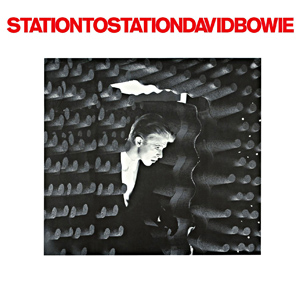
10 – Station to Station (1976)
A transition record, and the introduction of a new persona, the Thin White Duke. Station to Station came on the heels of Young Americans and it’s excesses led Bowie to escape to Berlin. It’s a cocaine-fueled masterpiece that packs six classic tracks into a compact 37 minutes. Golden Years and Word on a Wing are among Bowie’s all time best.
11- Earthling (1997)
Much like its predecessor Outside, Earthling is a lightning rod record. Bowie showed his experimental side is alive and well with a drum-and-bass based album created by a band centering on Reeves Gabrels, Zack Alford and Mike Garson. This record showed the influence Bowie picked up during his tour with Nine Inch Nails and featured the classic I’m Afraid of Americans as well as Telling Lies, Seven Years in Tibet and Law (Earthlings on Fire).
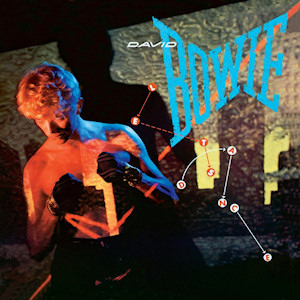
12 – Let’s Dance (1983)
After a quiet few years Let’s Dance is the record that brought Bowie to the masses. Anchored by the pristine production of Nile Rodgers and the guitar work of a then unknown Stevie Ray Vaughn, Bowie created one of the definitive records of the 80’s. While this is undeniably a landmark record, it does sound a bit dated now. Everyone knows the hits, but don’t forget gems like Without You and Cat People (Putting Out Fire).
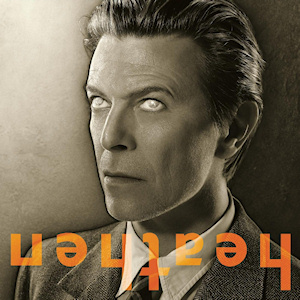
13 – Heathen (2002)
Part of a really prolific period in the early 2000’s Heathen is arguably the best of that group of records. It sees Bowie both dipping into the past (a reunion with Tony Viscont, three covers) and looking to the future in songs like Slow Burn, Heathen (The Rays) and Afraid which question where mankind is heading.. It’s a spiritual record, a reflective record and a really great record.
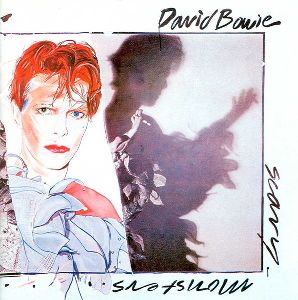
14 – Scary Monsters (And Super Creeps) 1980
Another of Bowie’s transitional records, this time from the electronic/ambient sounds of the Berlin trilogy to the slick 80’s hits of Let’s Dance. The title track, Ashes to Ashes and Fashion are Bowie showing the New Wave kids that he did it first and can still do it better.
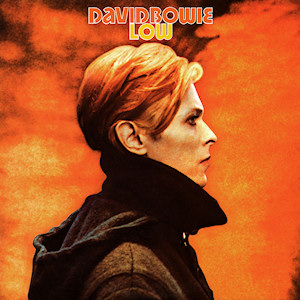
15 – Low (1977)
This first entry in the “Berlin Trilogy” and the first collaboration with Brian Eno. For me, Low is a tale of two sides. Side A is more song-oriented with classics like Be My Wife, Sound & Vision and Breaking Glass while Side B takes the first steps into ambient electronica with songs like Warszawa and Art Decade. Personally, I don’t go back to those more ambient songs very often, but their themes were explored more fully in Philip Glass’ Low Symphony.
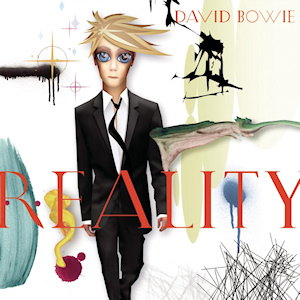
16 – Reality (2003)
The third release in the early 2000’s creative flourish and his last record for 10 years. Created by an all-star band featuring Mike Garson, Earl Slick, Gerry Leonard and Sterling Campbell Reality isn’t a bad record by any means, it just isn’t as memorable as classic Bowie records. The record is a combination of songs written for the project (New Killer Star, Fall Dog Bombs the Moon), songs Bowie had worked on over the years (Bring Me The Disco King) and covers (Pablo Picasso, Try Some, Buy Some).
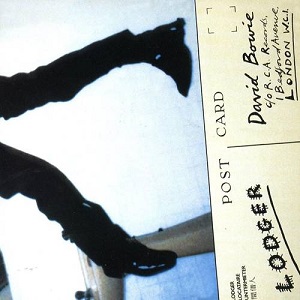
17 – Lodger (1979)
Although this is last entry of the “Berlin Trilogy”, Lodger probably has more in common with its follow-up, Scary Monsters, than with either Low or “Heroes”. Unlike it predecessors there is no division of vocal songs and instrumentals. While there are plenty of high points (Fantastic Voyage, DJ, Boys Keep Swinging) there is also the feel that Bowie and Eno have begun to run out of ideas. Taken on its own, Lodger is a fairly strong record, taken as the follow up to “Heroes” it falls a little flat.
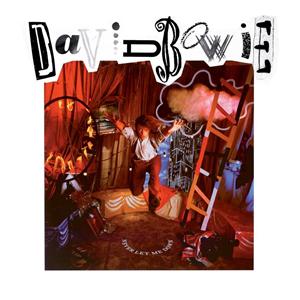
18 – Never Let Me Down* (1987)
I know, “how can this record be even this high?”, but there’s an asterisk. First off, I think I like the original version of this record more than most. To me the lyric of the title track is one of the most beautiful Bowie ever wrote. Yes, it has a very 80’s production and weird stuff like Glass Spider, but it also has some of his best rockers in Day In Day Out, Time Will Crawl and Bang Bang. Now for the asterisk…the 2018 complete re-imagining of this record on the Loving The Alien box set. Keeping the original vocals and certain musical phrases from each song, it is a triumph that shows what these songs could have been. If the 2018 version was the original, it would easily be in the top 10.
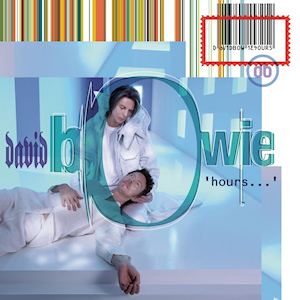
19 – Hours (1999)
Much like Reality, it’s not a bad record, there just isn’t much to go back to on it. All of the songs are sort of a mid-tempo and a definite sonic shift from Earthling just two years prior. Something In The Air, The Pretty Things Are Going To Hell and If I’m Dreaming My Life are all good songs but pretty much forgotten in the Bowie cannon.
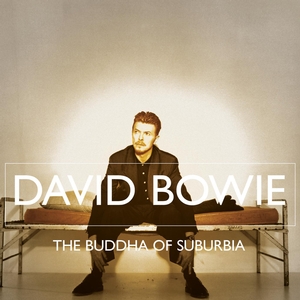
20 – The Buddha of Suburbia (1993)
Sort of a soundtrack, sort of a prelude to what would become Outside, this is a largely forgotten Bowie record. There are throwbacks to the ambient compositions of the Berlin-era (South Horizon, The Mysteries), there’s eclectic 90’s alternative (Sex and the Church, Bleed Like a Craze, Dad) but above all there is one jaw-dropping piece of classic Bowie, the original version of Strangers When We Meet.
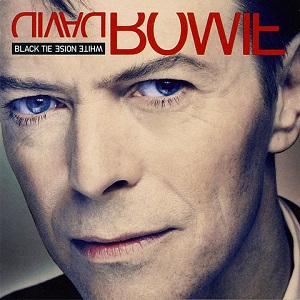
21 – Black Tie White Noise (1993)
It had been six years since his last solo record (time he spent with Tin Machine) and this was hailed as a reunion with Nile Rodgers, so hopes were high for Black Tie White Noise but it just didn’t live up. It’s almost like Bowie was entering an adult contemporary phase as a backlash to the edgier Tin Machine records. The highlight of the record is the return of Mick Ronson, however it’s wasted on a cover of Cream’s I Feel Free as opposed to a new composition. Jump They Say is easily the standout track but I do love his ultra-campy version of Morrissey’s I Know It’s Gonna Happen Someday.
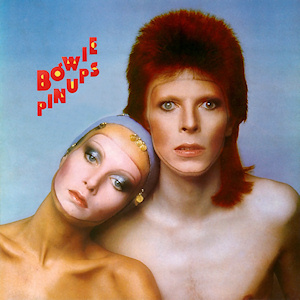
22 – Pin-Ups (1973)
A covers record. While Bowie was in the height of his creative powers, smack in the middle of Aladdin Sane and Diamond Dogs he puts out a covers record. It’s not a bad one, it introduced me to a number of bands I wasn’t familiar with yet as a teen (The Pretty Things, Them, The Easybeats), but it feels like a waste of the Spiders From Mars and ultimately proved to be their last recording.
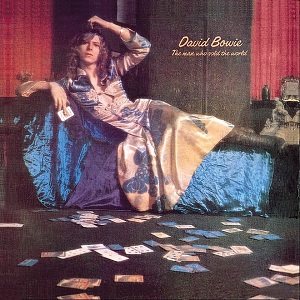
23 – The Man Who Sold The World (1970)
This record set Bowie up for Hunky Dory and it’s the first time we hear Mick Ronson on a Bowie record. The title track became a classic 23 years later when Nirvana covered it in their Unplugged set but the rest of the songs see Bowie trying to become the songwriter he would turn into. Width of a Circle and The Supermen would remain in Bowie’s live sets going forward but the rest is a first step to what he would ultimately become.
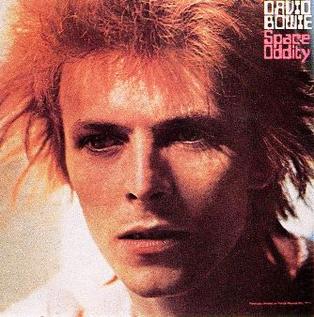
24 – Space Oddity (1969)
This record had many names (David Bowie in the UK, Man of Words/Man of Music originally in the US, Space Oddity upon re-release in the US) but is best known for it’s epic title track. It’s a weird mix of 60’s folk and the then-emerging prog scene. It’s certainly a product of it’s time but does feature a hell of a band which included Rick Wakeman on piano and John Lodge of the Moody Blues on bass.
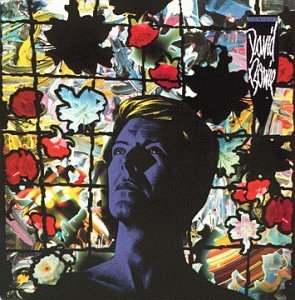
25 – Tonight (1984)
Ahh Tonight, the great disappointment. After the gaudy highs of Let’s Dance and the Serious Moonlight Tour Bowie needed a follow-up but, unfortunately, had nothing written. He put together a scattered record of covers (3 from Iggy Pop, 1 Beach Boys and 1 from R&B singer Chuck Jackson) and low grade originals. While Blue Jean was a hit and Loving The Alien has promise, the rest is pretty forgettable. The great travesty is the title track, a beautifully written lyric lost on some weird 80’s reggae beat.
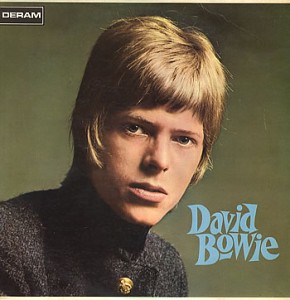
26 – David Bowie (1967)
His debut solo record. I suppose everyone needs to start somewhere. The songs and style bear no resemblance to who and what Bowie would become. It sounds like a million other late 60’s British singers that have been lost to history. Who knew that the guy singing Love You Till Tuesday was five years away from being Ziggy Stardust?

